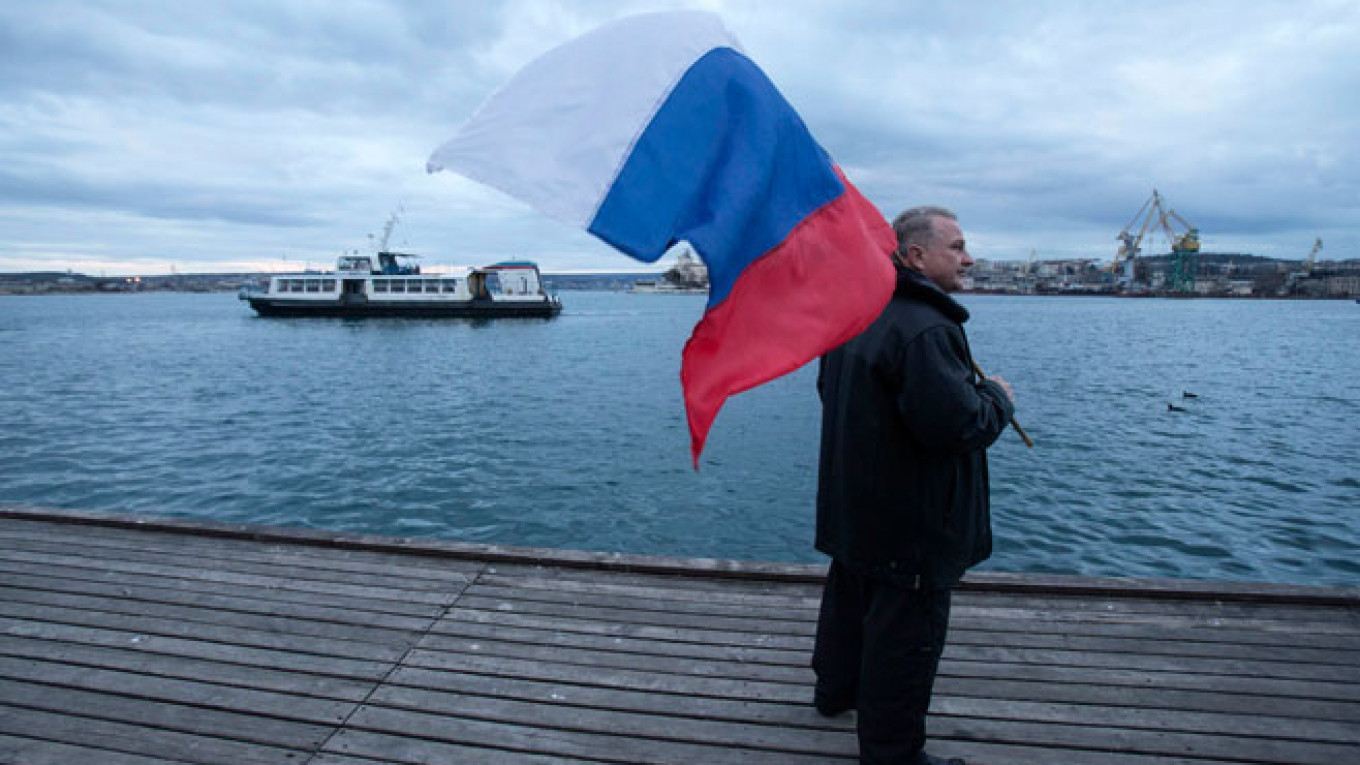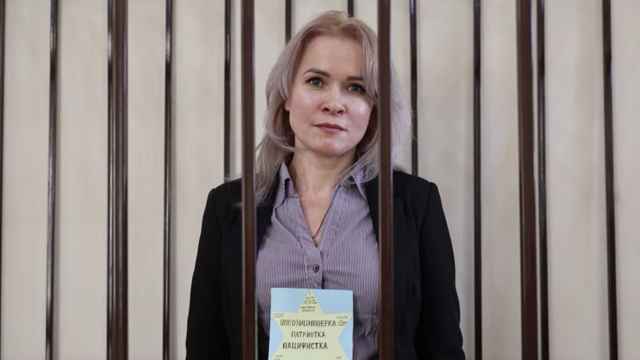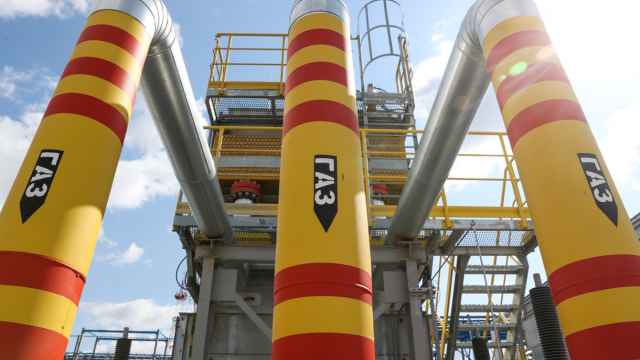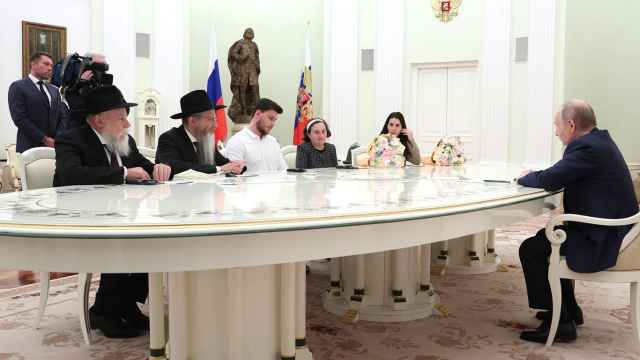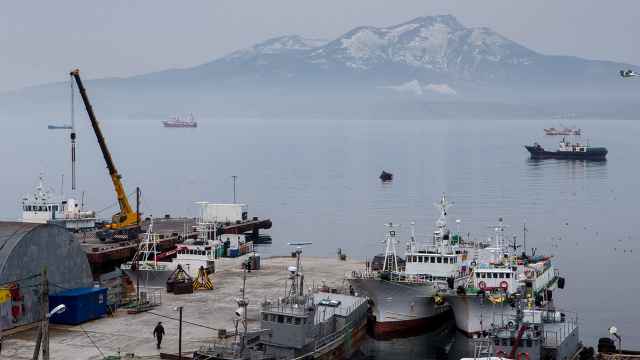Russia's leading sociologists, economists and political scientists attempted to explain the secret of Putin's phenomenal popularity at a panel discussion in Moscow on Tuesday. Their conclusion was that despite the sharp fall in real incomes over the past months, Russians continue to support their leader as they feel he protects them against both external and internal threats and makes them feel proud of themselves and their country.
At the same time, the current record-high levels of support are determined by the ongoing confrontation with the West over the future of Ukraine. This confrontation will either stagnate, pushing Russia into economic independence, or will result in a detente that will shift the focus of attention back to the country's internal challenges.
Under both scenarios Putin's rating will be challenged by growing economic anxiety among the public. In the first scenario, economic isolation will inevitably erode people's living standards to the extent that an external confrontation will no longer be enough to ensure their support. In the second, people will revert to the internal agenda and see Putin's economic shortfalls, experts said.
"While at the beginning of 2014 people were inspired by the Sochi Olympics and Crimea's annexation, later they felt they had to be united against an external enemy," said Sergei Belanovsky, a prominent sociologist.
"Today we see that there is a new factor of fear: People are afraid to lose what they have, and there is a protest against protests," he said.
The analysts' forecasts were made for a report titled "Between Crimea and Crisis: Why Have Russians' Social Aims Changed?" commissioned by former Finance Minister Alexei Kudrin's Civic Initiatives Committee and presented by Mikhail Dmitriyev, a former head of the Russian government's top think tank and his colleague Belanovsky.
These are the same experts who correctly predicted the wave of political protests in Moscow and large urban centers following the 2011 State Duma elections and also foresaw the stagnation of the Russian economy in 2013-14.
Reinventing Putin
During his 15 years at the helm of Russian politics, Putin has responded to different sociological priorities of the population, the report said.
In the 2000s, Russian society made a great leap in terms of consumption, raising living standards and shifting people's immediate priorities away from everyday survival.
By 2011, Russians had begun to think more about their long-term development, demanding better quality of health care and education. These demands were not fulfilled, and people became increasingly frustrated by their personal prospects, the report said.
By the end of 2013, many social indicators were increasingly negative, with people less confident in their future and the majority believing that the country had entered a period of stagnation, according to polls by the independent Levada Center.
This period ended at the beginning of 2014, when the Sochi Olympics and Crimea annexation propelled people's enthusiasm and Putin's approval ratings to historically high levels.
Immune Ratings
The euphoria did not last long, as Russia was hit by an economic crisis that resulted from an oil price slump, sanctions imposed by Western governments over Ukraine and the economy's internal structural inefficiencies.
Nevertheless, Putin's approval ratings remained high, as people feel he protects them against an external threat, the analysts said.
"Putin's ratings always corresponded to how people felt about the economy, but today there is a lag between these two variables," said Dmitriyev, a member of the Civic Initiatives Committee.
"If the Ukraine factor fades away or the conflict becomes frozen, the rating will likely decrease quite quickly, bringing it into line with attitudes toward the economy," he said.
In addition, as the Ukraine conflict begins to appear as less of an emergency, the role of state-run media propaganda will also diminish, like at the end of 2013 when people began to trust alternative sources of information more, Dmitriyev said.
National Pride
While Dmitriyev and Belanovsky stressed in their report that at the current level of consumption, if the Ukraine crisis fades away, Russians will inevitably shift back to their own development and pose higher institutional demands of their government, other experts on the panel were more pessimistic.
"What we are seeing is that people do not have an image of their future, they live by reproducing what they already have," said Lev Gudkov, head of the Levada Center.
"The main fear is losing what they have," he said.
According to Gudkov, Russians act out of a deeply entrenched inferiority complex and the desire to live in a great country. These sentiments were suddenly satisfied by the annexation of Crimea and ongoing conflict in Ukraine.
At the same time, when the Ukraine conflict is resolved, the country will not return to its starting place, the analysts said.
"The regime is now turning from an authoritarian one into a repressive one," Gudkov said.
"The anti-Ukraine propaganda has made a reform agenda for Russia less likely," he said.
Soviet Legacy
Boris Makarenko, chairman of the Center for Political technologies, a Moscow-based think tank, said during the panel discussion that Russia's difficulty is that different interest groups fail to form powers that could be active on a political level. As a consequence, the political landscape is flat and the government is the only active player.
"The Soviet regime suppressed all social, ethnic and cultural divisions that would by now have developed into a vibrant political life," Makarenko said.
"So far these divisions have not been overcome," he said.
A Message from The Moscow Times:
Dear readers,
We are facing unprecedented challenges. Russia's Prosecutor General's Office has designated The Moscow Times as an "undesirable" organization, criminalizing our work and putting our staff at risk of prosecution. This follows our earlier unjust labeling as a "foreign agent."
These actions are direct attempts to silence independent journalism in Russia. The authorities claim our work "discredits the decisions of the Russian leadership." We see things differently: we strive to provide accurate, unbiased reporting on Russia.
We, the journalists of The Moscow Times, refuse to be silenced. But to continue our work, we need your help.
Your support, no matter how small, makes a world of difference. If you can, please support us monthly starting from just $2. It's quick to set up, and every contribution makes a significant impact.
By supporting The Moscow Times, you're defending open, independent journalism in the face of repression. Thank you for standing with us.
Remind me later.


